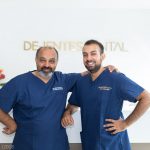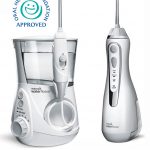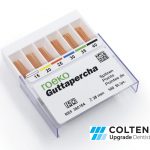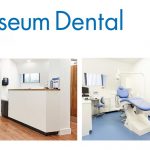Dr Rahendra Naidoo has been a dental surgeon for over 25 years and has a special interest in restorative dentistry, as well as cosmetic solutions and implantology. He qualified in 1991 from the University of the Western Cape and gained a Diploma in Restorative Dental Practice in 2002 from Eastman’s Dental Institute.
Rahendra has successfully built two well-established dental practices providing quality dental care and launched De-ientes London in 2018 with his son, Dr Saroshen Naidoo. Saroshen graduated from Sheffield University in 2016 and joined the family business in 2017. He has been working with his father to develop the practices ever since.
Starting from scratch
We were looking for a premises in London when we came across an opportunity to establish a squat practice in Golders Green. The building is shared between us and a GP practice, and offered a completely blank canvas to work with.
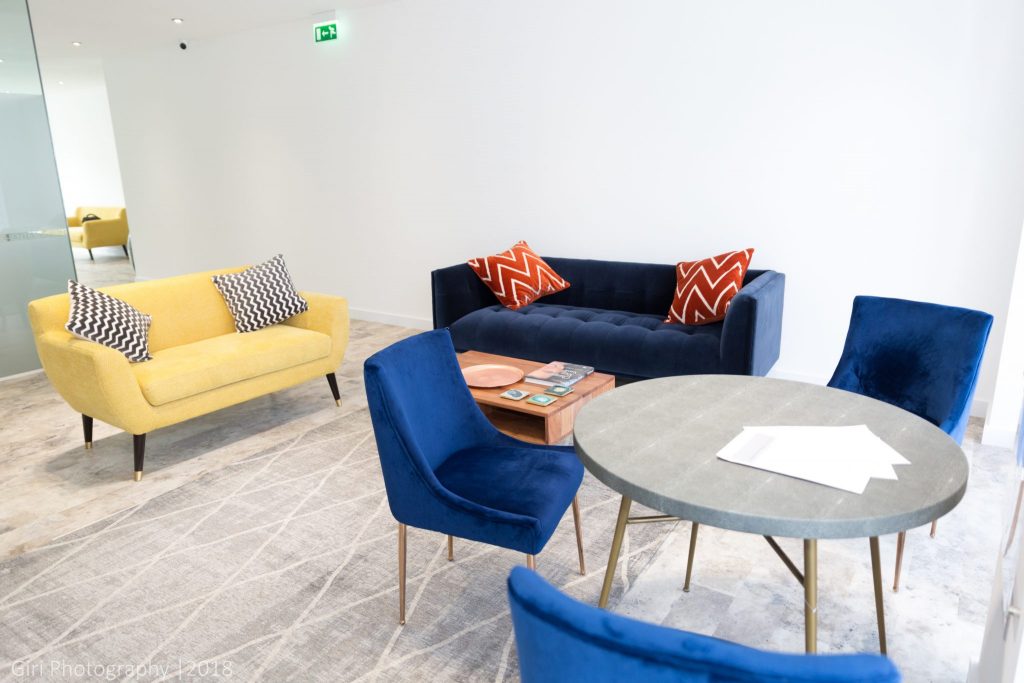
Ahead of this new adventure, the support of our family was crucial for our mental preparation. Setting up a squat practice is a hugely emotional rollercoaster and it can be very stressful at times. Having the support of friends and loved ones is therefore essential. In terms of financial preparation, we organised a business proposal and took it to the bank for funding. This involved liaising with our builders and potential suppliers for approximate costings to achieve our vision. The builders – Apollo – were particularly helpful at this stage in providing guidance on design and construction quotes.
We also tried to determine the branding for the new practice early on. We wanted to maintain the brand from the other two practices, but as they are NHS/mixed and this new squat was to be fully private, we were initially unsure how to proceed. In the end, we decided to keep a similar feel to the existing premises, and simply upgraded it to reflect the excellent private dental services we hoped to provide.
Getting stuck in
As the premises was an empty shell, we had the flexibility to really create something special. We also had the freedom to design a purpose-built dental practice, rather than having to adapt an existing set-up, which was amazing. However, this also meant that we had a lot to do. The project required everything from re-wiring the building to installing a suspended floor and wall partitions, before we could even think about the finer details like equipment and décor. The result of good planning was a beautiful open space with three large surgeries and tall windows that let in lots of natural light.
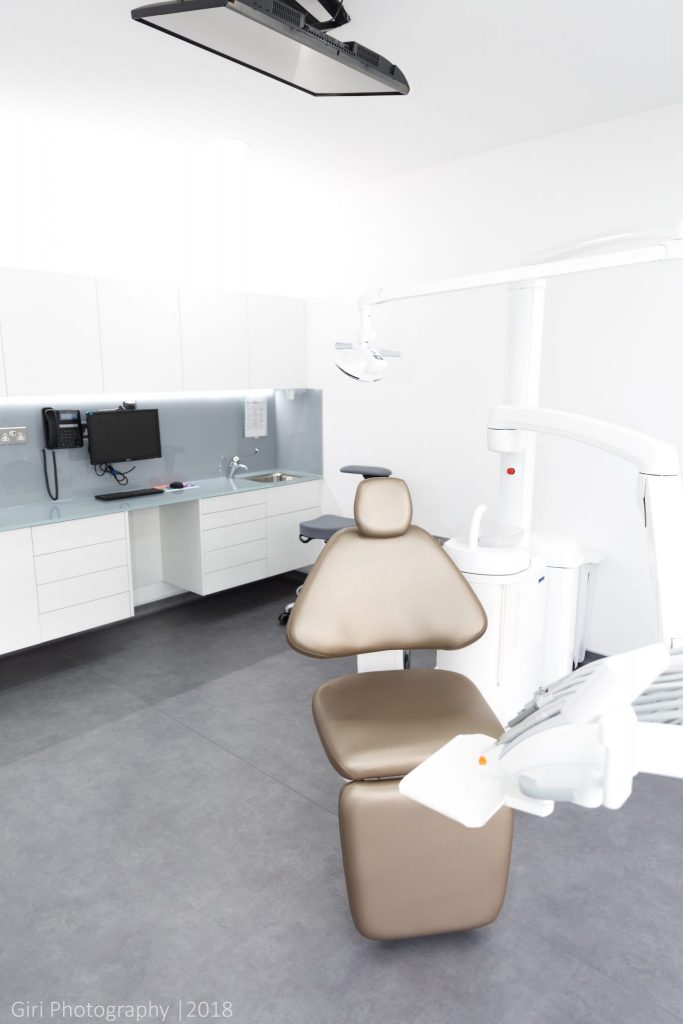
But that’s not to say that there weren’t challenges along the way. You have to take each stage as it comes. The biggest concerns when creating a squat practice are always about whether you can make it work and whether it will all be worth the investment of money and time. Beyond these, we found it challenging to decide on smaller things like the type of flooring. We had plenty of debates to make sure we selected the right options for us! We also faced problems when connecting the telephone line in order to establish an internet connection. This delayed the IT equipment installation and took some time to sort out. It’s important to remember that setting up a dental practice is a marathon, not a sprint. By keeping a calm head and with the support of family, we were able to overcome each hurdle we came across.
Sourcing equipment
We researched a few different manufacturers when it came to sourcing imaging equipment and dental units in order to find the best deal. In the end, our existing relationship with Planmeca and our confidence in the quality of their products led us to stick with them for this project.
We purchased three different dental units – the Planmeca Sovereign Classic, Planmeca Compact™ i Classic and Planmeca Compact™ i5 – otherwise affectionately known to us as the ‘Ferrari’ dental chair. The latter provided an all-singing, all-dancing dental unit that aligned with our passion to deliver the very highest standard of dentistry. We also liked the Planmeca Sovereign Classic model as it offers the flexibility of a left/right swivel function. All the dental chairs promote patient comfort with a memory foam-like cushion.

With regards to our new imaging technology, we chose the Planmeca ProMaxÒ 3D, because it delivers high quality images with a low radiation dose. We also invested in a Planmeca ProX™ intraoral X-ray and a Planmeca ProScannerÒ, further ensuring that we could provide exceptional dentistry and a first-class patient experience. The team from Planmeca were excellent. When we purchased all the equipment, the building work wasn’t completed and they very helpfully stored the technologies until we were ready. They worked with the builders to ensure everything was in place for a smooth installation.
We also purchased suction motors and compressors from Cattani.
One year later
We were delighted with the practice we created. In order for the business to fulfil its potential, building up a patient base was crucial. We therefore invested heavily in our marketing. This was a challenge as our skills were in delivering excellent clinical dentistry and patient care. A steep learning curve was involved to utilise marketing platforms like social media, alongside traditional channels.
We are very happy with what we have achieved so far, but there is still a way to go. We have seen a steady growth in our patient base and are aware of the need for continued investment in order to maintain and build on this success. We are proud of the type and quality of private dentistry we can provide from this practice, offering patients an alternative route to NHS treatment.
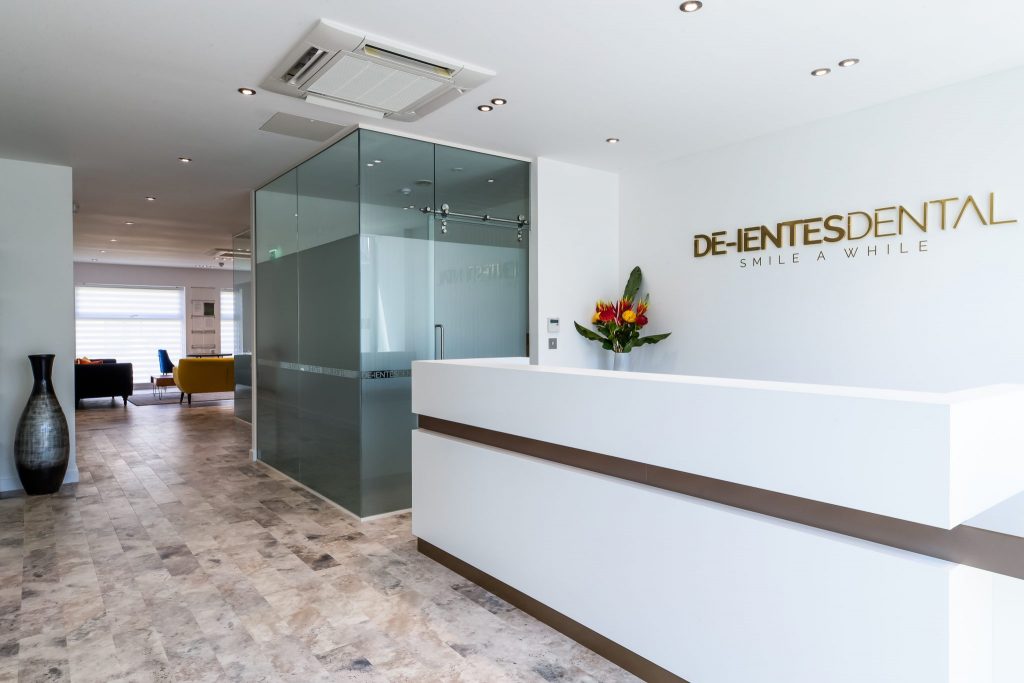
Reflection
Looking back over the entire process, there are a couple of things we might do differently next time. Firstly, we would consider the marketing aspects earlier and in more detail. This would enable us to focus on other tasks without worrying about promotion of the practice when we were ready to open. We would also look to recruit staff who are committed to building a squat practice earlier on in the process.
In addition, there were a few smaller details that perhaps we could have chosen differently. In hindsight, while we chose the glass worktops, corian may have been a more practical and cost-effective solution. Also, we could have made the signage and graphics for the windows a bit bigger and more obvious. However, these are only very small details and we are otherwise thrilled with what we achieved. We have even started receiving referrals from local practices for our specialist services and advanced dental treatments.
For any dentists setting up a squat practice, we would advise speaking to others who have gone through the process. It is also very useful to have built up a network of useful contacts before you start. This way, you have people to ask for information and advice, plus you will know who you can work with best. Planning ahead in terms of everything from finances to marketing, staff and branding is a must!
For more information, please visit www.planmeca.com or call 0800 5200 330







